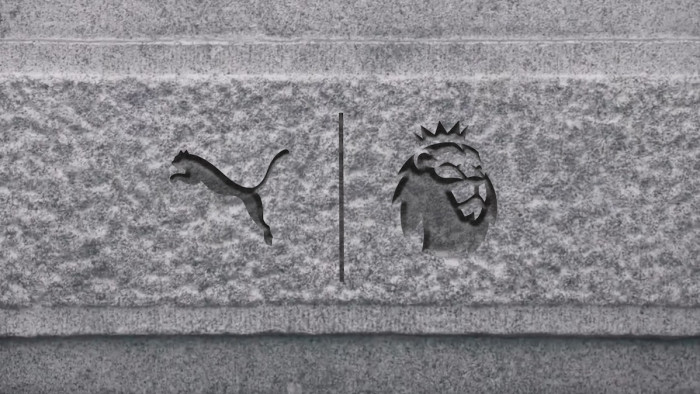You don’t get to be a champion boxer just by having the best name in the business. Tyson Fury tells Andrew Dickens how to prepare for a big fight
If Tyson Fury beats David Haye in the heavyweight world elimination fight in Manchester this Saturday (NB. the bout has now been postponed after an injury to Haye and rescheduled for Feb 8th 2014) it won’t simply be the result of what happened in the ring that night. It will be down to months of focused training building up to one bout. Pain, sacrifice and preparation all play their part. Here, Fury reveals how the journey starts from the very first week.
IT BEGINS
“The first work I’ll do is some long running – long, slow five- or six-mile runs, four or five times a week – and some pad work. That goes on for about four or five weeks. For this fight, we did that in the south of France, which was really enjoyable, training on the beach and in the sun. Your diet starts to change again – you start to get back into your routine diet. When I’m first in camp, I usually drink a shake for breakfast, then a lot of protein shakes throughout the day. And chicken and rice, meat and rice, vegetables, fruit. Not 100 per cent though, yet. You can still eat some unhealthy things as well.”
CRANKING IT UP
“After five weeks, we introduce sparring and technique work, plus some heavy bag work and weights. We don’t run any more. We introduce cross-trainer, bicycle and rowing machines, rather than smashing your legs as you get close to a fight. You take for granted the things you’re allowed to eat when you’re not training. Just the small things, like some sauce on your food – on pasta or meat. It’s just eating it dry. You take milk and cheese for granted – I don’t eat any dairy products.
“Choosing sparring partners is very important. We try to get people with the same kind of stature, size and ability as my opponent. So for Haye, we’ve had speedy guys who are fast and awkward. We wouldn’t get somebody who’s massive. As soon as they get here, they’re told to kill – attack me and knock me out. If they can, they get a £1,000 bonus. It’s never happened – the money’s still in the jar. We start off with eight rounds or so of sparring, followed by pad work and heavy bag work. Then, getting a bit closer to the fight, we start upping the sparring to 12 rounds a time. We train once on a Saturday and get Sunday off.”
BUILDING POWER
“We do weights from the start of the second camp. That consists of two body-parts per day, say, four or five times a week. Chest and arms, back, legs. We bring it down to three times a day, then with four weeks to go, we put it down to two times a day, and that’s how it’ll stay until a week before the fight. We also use some unusual strengthening methods. I use a 22kg hammer to smash a truck tyre to pieces, using overhand swings. We do that for minute-and-a-half intervals, and about 10 to 15 intervals. That’s really hard. It’s good for strength and stamina-building. We have a tractor tyre, too, which is maybe 150kg, and I flip that up and down the gym. My uncle introduced those. There’s no point lifting a bottle of Coca-Cola above your head. It’s got to be something really heavy and big and awkward-looking.
“We also do these things that we call ‘bear crawls’, where you get down on all fours and keep going backwards and forwards or around the ring. That really works your back, legs, chest, arms – everything. Then we do them in reverse, like a crab. I weigh about 18 and a half stone at the minute, so it’s very hard work.”
LEARNING LESSONS
“Nobody’s an expert in everything. Even today, we’re still learning different things – new people bring different things to the table. I’ve stopped doing a lot of running. I used to do a lot of roadwork every day, and for someone so big it just smashes your knees to bits. By the time I’m 40 or 50, I’ll be in pieces. I use the bike and the rowing machine and the cross-trainer, which is non-taxing on the legs and the joints, and still gets the same cardio and your heart rate going. I didn’t used to have a nutritionist and a dietician, and we’ve introduced that into training, and that’s worked for me.
“I used to eat a lot of red meat, like steak every day. I don’t eat so much red meat any more – maybe once or twice a week – because it takes a long time for your body to digest and process. You learn different things from different people. For the first 17 fights, I only prepared once properly, which is stupid. I managed to win them all, but I was lucky in a few of them. It affects you psychologically because I knew I needed a knockout in the first four or five rounds, otherwise I was going to be out of gas.”
MENTAL STRENGTH
“I’m one of those guys who doesn’t really think about the fight until I’m walking to the ring, and then it’s on you, so you haven’t got a lot of time to think about it. When you start thinking and worrying about fights, you can make it more than what it is. It’s only a boxing match. It’s only a man with a pair of gloves on trying to punch you in the face. I’ve done this 50-odd times before, so there’s no point getting nervous. I know nearly every heavyweight in the world. I know their styles, what they’re like, so there’s not much I need to watch, but my trainer puts the game plans together, analyses the fighters. I don’t really get involved in that side of things.
“The hardest part, mentally, is that I’ve been away from my wife and kids. The training itself is something I’ve done all my life. I’m used to it now. But the sacrifices you have to make – that’s the hardest part about it. There’s not really a method for dealing with it. Get to bed early and wake up early. You just try to make the best of it. You can speak to your family on the internet, on FaceTime or Skype or whatever. And that’s it. And you can watch films, and talk to the boys and that, but that’s as far as it goes.”
THE COUNTDOWN
“In the last couple of weeks we ease the training back a bit. We stop sparring and we introduce a bit of shadowboxing – three or four rounds per day, sharp, to the style we’re going to use in the fight. It’s about tapering off, but not tapering off too soon. In the last five or six days there’ll be total rest and regaining the energy I’ve spent over the previous 12 or 13 weeks. There’ll be a little bit of walking, some swimming, playing in the pool, Jacuzzi, massage. Relaxing – nothing too energy-expending.”
Haye vs Fury has been postponed following an injury to David Haye and rescheduled for February 8th 2014. The fight will be live on Sky Sports HD Box Office and Sky 3D Box Office. See skysports.com/haye-fury or call 0844-2410 888 to book
(Images: Charlie Gray)
Latest
Related Reviews and Shortlists










